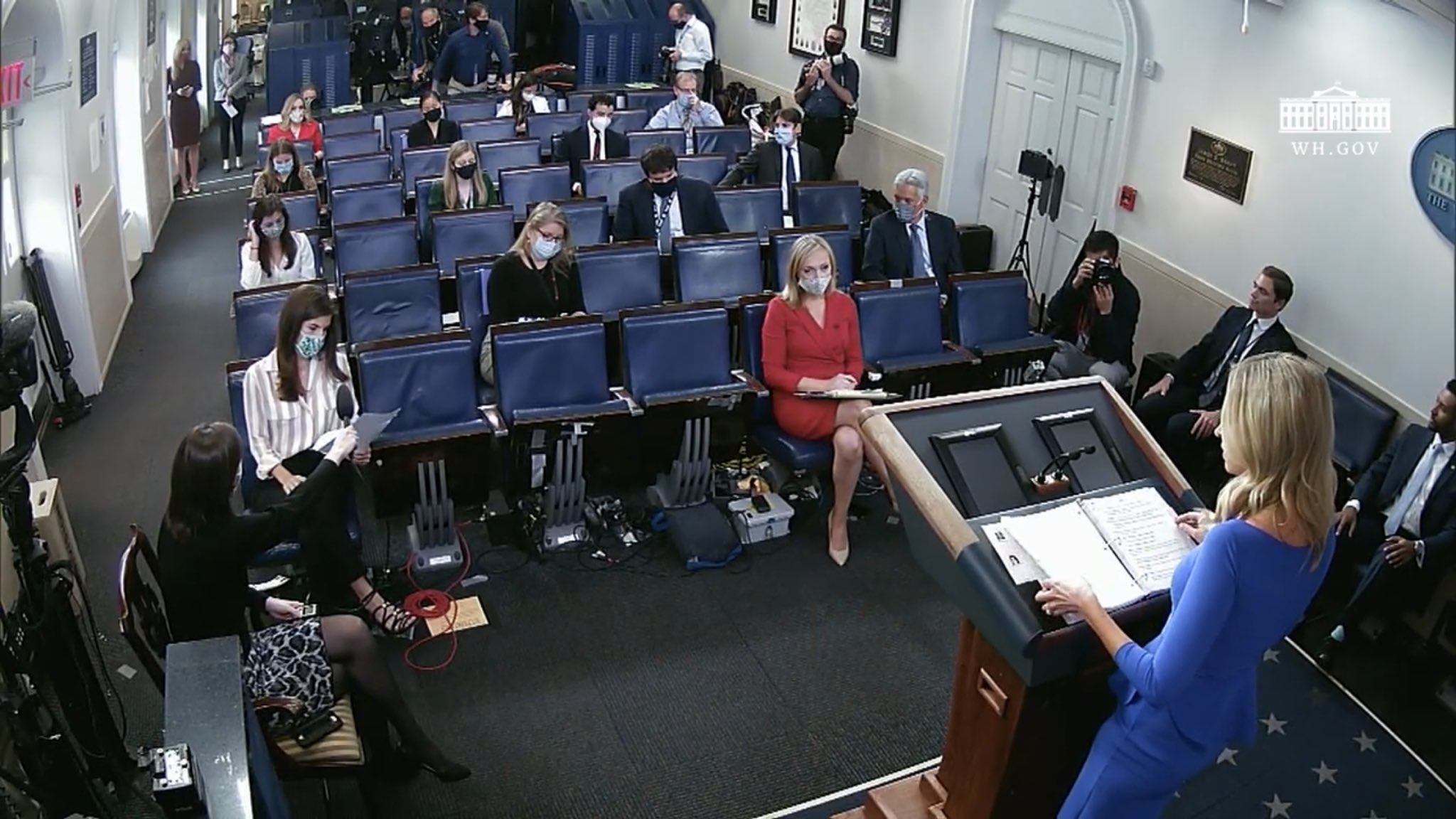White House press secretary Kayleigh McEnany conducted a typically feisty briefing Thursday—she and Fox News reporter John Roberts got into it, for instance, over why President Trump wouldn’t condemn white supremacists during Tuesday’s debate. She incorrectly claimed Amy Coney Barrett was a Rhodes scholar (Barrett went to Rhodes College in Tennessee). She blamed “the media” for: 1) not covering the times Trump has denounced white supremacists; 2) interrupting her while making a big deal about Trump interrupting Joe Biden; 3) talking about the Proud Boys.
As usual, McEnany and other White House staffers were unmasked during the briefing. (Trump White House staffers “generally do not wear masks in deference to the president’s disdain for them,” the New York Times reports.) The Brady Briefing Room is a small space, and while reporters were mostly masked—though not Jenn Pelligrino of OANN—and spread out about as much as they could manage, it’s the kind of environment that the WHO expressed concern about this summer in terms of transmission.
Washingtonian contacted numerous news organizations to ask about the safety of their reporters. A Washington Post spokesperson says the news org is “working to identify Post journalists who may have come in contact with White House officials recently, to ensure that our colleagues are tested rapidly and fully supported.” Speaking on Fox News Friday, Roberts said anyone performing pool duty for Trump is tested, and that the President has been careful to keep his distance from reporters.
The White House Correspondents’ Association does not yet have a statement on the safety of its members in the briefing room in light of the President’s diagnosis. Last Tuesday its board sent a memo to members advising how to keep themselves and their colleagues safe as Election Day approaches and many White House reporters must travel more. It advised journalists who travel on Air Force One to “be mindful” of the District of Columbia’s requirement to self-monitor after traveling to high-risk locales.
The organization says it has “repeatedly and forcefully advocated for protective measures for our members when traveling on assignment with the president” and heard from members who’ve expressed “concerns about individual events or travel more broadly and have tried to work with the White House and campaign to address as many of them as possible.” But, it wrote: “Realistically, though, it would be foolish of us to assume that the situation will improve dramatically over the coming six weeks.”



















